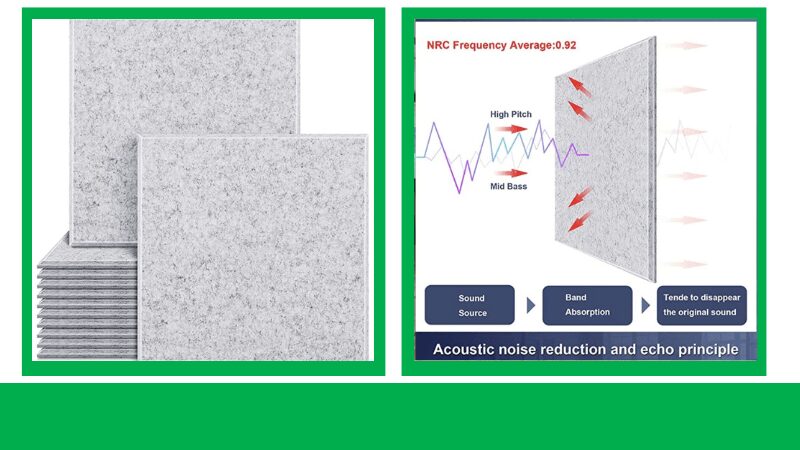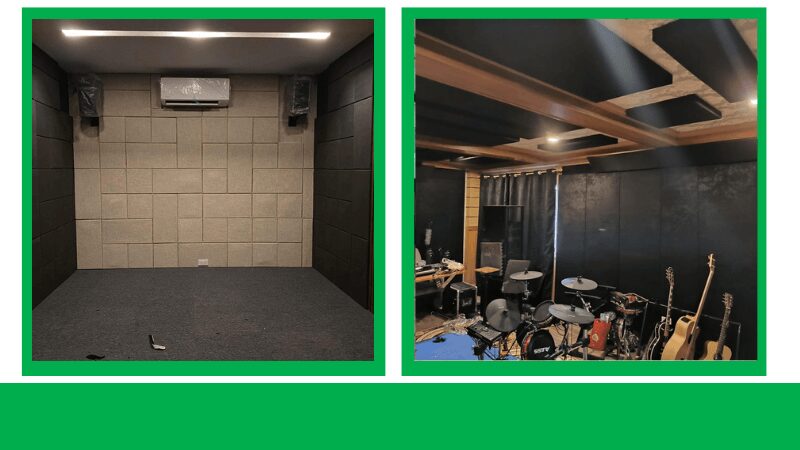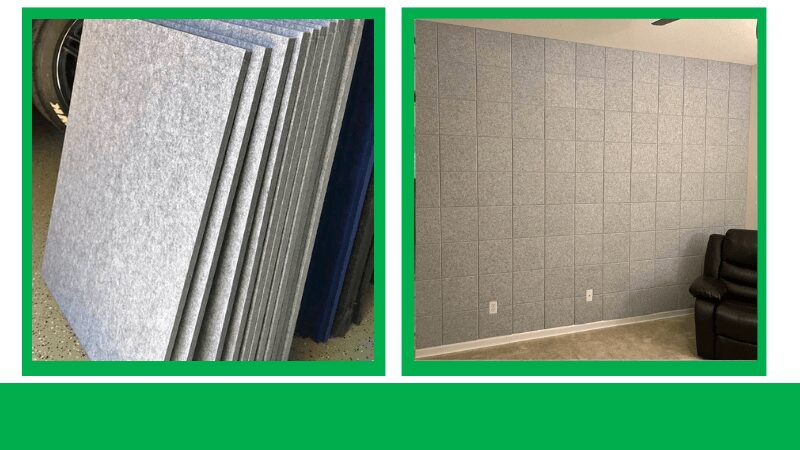Acoustic panels have become a popular choice for individuals seeking effective soundproofing solutions. The question arises: Are acoustic panels truly good for soundproofing? In this article, we will delve into the world of acoustic panels and explore their effectiveness in reducing noise and creating quieter environments. By understanding the benefits and limitations of acoustic panels, readers can make informed decisions regarding soundproofing their spaces.
Quick Answer
Yes Acostic panels are good for soundproofing. Exactly how good? lets find out
The function of Acoustic Panels
Acoustic products increase the comfort and safety of inhabitants in a chosen space by mitigating the levels of noise generated inside and outside these environments.
Similarly, acoustic panels play a crucial role in enhancing sound clarity by eliminating noise and distracting reflections that may contribute to chaotic and disordered conversations between all participants during meetings. Acoustic panels can either act as soundproofing agents by blocking noise from the external world or as sound-absorbing agents to minimize the noise from the chosen space.
How Effective Are Acoustic Panels at Soundproofing
In more specific terms, soundproofing is the reduction of sound energy using sound insulation by mitigating the scale of noise leaving or entering a space. In contrast, sound absorption is associated with softening echoes and reverberations within a space. An illustration of soundproofing using acoustic panels can entail the construction of a special wall around a music room or studio in a school to isolate the space from the adjacent classroom.

Related: How to Soundproof bedroom walls
In comparison, sound absorption can involve installing barriers to block and lessen the acoustic energy a noisy air compressor produces. Notable examples of spaces prone to echo and reverberation issues are large community halls, churches, sports facilities, and other types of community centers that can accommodate many people.
Factors to Consider
The decision to install acoustic panels to mitigate background noise and eliminate echo & reverberation is dependent on several key factors and considerations.
Type and quality of the acoustic panel
In line with this statement, the most important factor to consider when choosing a good soundproofing or absorption material is the type and quality of the acoustic panel. This factor will focus on the material’s thickness, density, and porosity to ensure that it can absorb and trap as many sound waves as possible.
Size of the Room
The other significant consideration is the room size, together with its layout and the source of the noise, since sound waves behave differently under different settings. For instance, bigger rooms are more likely to experience higher levels of echo and reverberation than smaller rooms.
Particular soundproofing needs
The chosen space can alternatively be explored from the perspective of the specific purpose of the room. An example is a studio or room repurposed for music recording, which might require more extensive soundproofing than an IT office.

Price factor
The other noteworthy factors under this subject matter include the cost and affordability of acoustic panels. Also, the ease of installation and maintenance cost, the existing stuff in the room, and compatibility with other soundproofing methods. It is worth mentioning that acoustic panels mitigate noise and sound through four key mechanisms: blocking, absorbing, diffusing, and isolating, thereby safeguarding inhabitants from unwanted disruptions during various activities.
Limitations of Acoustic Panels and Alternatives
Notwithstanding these advantages associated with acoustic panels, this technique has some limitations and challenges.
First, acoustic material is mainly designed from polyurethane, implying that it is a dangerous fire hazard in the event of an emergency.
Second, selecting the most appropriate acoustic panels that are lightweight with strong environmental protection features is fairly expensive for even a single unit alone. Responding to these drawbacks, one of the most effective alternatives to acoustic panels involves using insulation materials, such as silicone, moving blankets, mineral wool, towels, and egg cartons.
In addition, the installation of soundproof doors and windows, as well as the implementation of relevant construction and structural modifications to a room, can also achieve the desired results.
Acoustic Panels for Sound Proofing: Summary
In summary, we have established that acoustic planes are generally preferred as the first choice of soundproofing and sound-absorbing materials. This is due to their high effectiveness in blocking and mitigating noise levels generated from internal and external spaces. Besides, acoustic products can enhance the aesthetic features of a room. Moreover, acoustic panels are safe and relatively simple to cut and install. Not forgetting their lightweight benefits for excellent sound absorption performance.
However, these panels have some shortcomings, particularly those associated with cost and fire resistance properties in the case of products made from polyurethane.
Interested parties should actively address their specific soundproofing needs when deciding on the soundproofing and absorption approach. It is crucial to consult with professionals to ensure tailored solutions that align perfectly with one’s specific soundproofing purposes and objectives. Consulting professionals guarantee the realization of effective and customized solutions. Utilizing helpful resources can also provide valuable information and guidance for successful soundproofing projects.
Useful Resources

